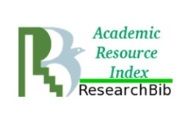CORPORATE REPUTATION, CREDIT RISK MANAGEMENT AND SUSTAINED FINANCIAL PERFORMANCE IN FINANCIAL INSTITUTIONS IN NORTH KIVU
Abstract
This study draws from the Stakeholders and the Information Asymmetry theories. It sought to establish the relationship between Corporate Reputation, Credit Risk Management and Sustained Financial Performance in financial institutions in North-Kivu. The study adopted a cross sectional and correlation quantitative design using a sample size of 35 institutions including banks and Microfinances; with the Board members, employees, clients and shareholders as the respondents or the unit of inquiry. The data were tested for reliability and validity, analyzed using SPSS version 20 and results presented based on the study objectives. The correlation coefficient analysis revealed significant and positive relationships between Corporate Reputation, Credit Risk Management and Sustained Financial Performance. This implies that, when the institutions are well reputed in their quality of products, services and management and cautiously observe the Credit Risk Management guidelines of the risk strategy such as risk identification, risk assessment, risk response and risk control, then the institutions are bound to experience greater levels of profitability, maintain sufficient liquidity levels and stable solvency ratios. Besides the correlation results, the predictors supported the regression model with an Adjusted R2 of 50.3%. However, Credit Risk Management was found to have a more direct effect on Sustained Financial Performance with (β= .654; p< .05). Therefore, in order to increase their financial performance more emphasis should be put on improvement of all the activities related to risk identification, assessment, response and control. Nevertheless, reputation shouldn’t be overlook to gain stakeholders confidence and sustain performance for the long run.

















